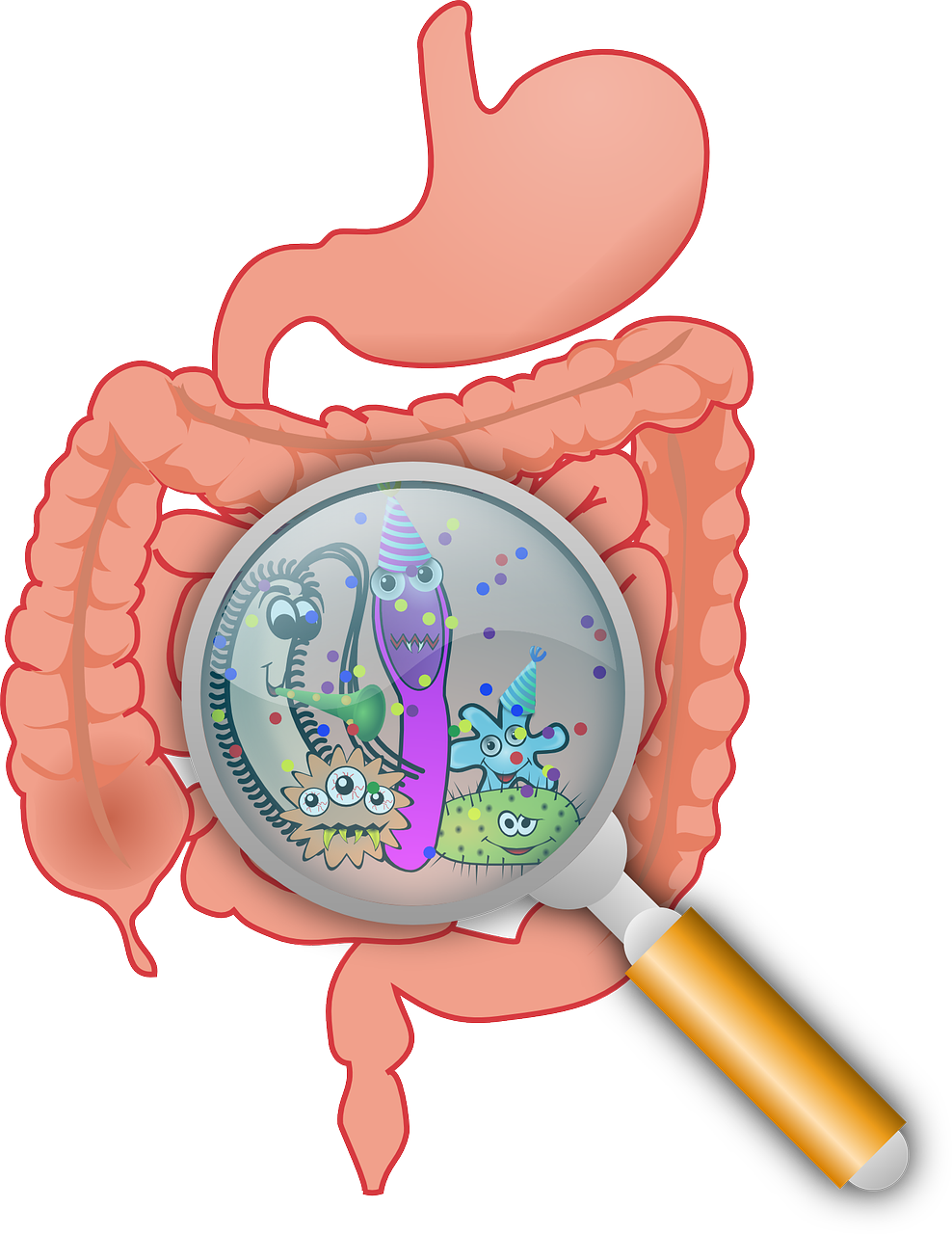Building up gut flora - why it's so important
Did you know that around 80% of our active immune cells are located in the gut? This makes the intestine our largest immune organ.
Intestinal flora is the term used to describe all the microorganisms in the intestine. These are tiny creatures such as bacteria, viruses and fungi. Around 90% of the microorganisms in our intestines are bacteria: "good" bacteria, which bring health benefits to the body - so-called probiotics (lactic acid bacteria) - as well as "bad" bacteria, which are also found naturally in every intestine.
Symptoms of impaired intestinal flora
Our intestinal flora is a very sophisticated but also sensitive system. In a healthy intestinal flora there is a stable balance. If there are fewer good than harmful intestinal bacteria in our intestinal flora, it is out of balance. This condition is known as dysbiosis. Dysbiosis can have serious consequences for us. If the "bad" bacteria manage to assert themselves, or if foreign bacteria, viruses, fungi, pollutants or allergens invade from outside, things get tight for our clever intestinal friends. They are then hard at work and can't do their actual job. Disrupted gut flora can therefore have

a significant impact on our health and well-being. Sometimes disturbances are also home-made, e.g. due to our lifestyle. Disruptive factors for our intestinal flora include:
- stress
- Unhealthy lifestyle (smoking, too much alcohol)
- Incorrect diet (too high in fat and protein, fast food, ready meals)
- Medication (painkillers, antibiotics)
- Insufficient hygiene standards (e.g. when traveling)
- Infections
- Environmental toxins & pesticides
An imbalance in the intestinal flora can manifest itself in flatulence, bloating, tiredness, headaches, reduced performance, but also intolerances such as gluten intolerance and vitamin deficiency. People who have been plagued by these symptoms for a long time often have their gut flora analyzed to get to the bottom of the causes.
If our body is supplied with sufficient good bacteria and has a strong immune system, the gut flora can usually regenerate quickly. Dysbiosis accumulates, or are even a permanent condition, the gut finds it increasingly difficult to regenerate. This can have a serious impact on our entire body, but also on our psyche. Scientific studies have shown that a permanently disturbed intestinal flora is associated with many diseases. This is why it is so important to build up and support the intestinal flora. Our primary goal should be to nurture and care for our good gut bacteria.
Probiotics - natural aids for the gut
Lacto- and bifidobacteria are probably among the best-known probiotics. They multiply diligently, produce essential nutrients for our body and make it particularly difficult for harmful microbes to attack us. Intestinal bacteria are our body's firewall. Our body provides the perfect living and nutritional basis for intestinal bacteria, which in turn keep important processes in our body running. Probiotics are often taken after antibiotic therapy in order to rebuild the intestinal flora and repopulate it with beneficial bacteria.
Intestinal bacteria and their functions
Their diverse functions show what the intestinal bacteria do as little helpers and what effect they have on our entire internal system:
- Supporting digestion
- Intestinal bacteria dispose of toxins and stimulate intestinal activity
- Their bacterial enzymes ensure the breakdown of indigestible food components
- Care and protection of the intestinal mucosa
- The formation of a protective barrier prevents the colonization of germs
- They maintain a healthy balance within the intestinal flora with as
many "good" and as few "bad" bacteria as possible , thus strengthening the immune system as a whole - Harmful pathogens are combated and expelled
- They are a clever alarm system: if pathogens manage to get through,
intestinal bacteria alert our defense cells - Through the lively exchange with the immune system, the defense is trained and
so important antibodies are formed - Intestinal bacteria communicate with our brain: with the help of molecules and hormones, they also influence our behavior, memory & stress perception ("gut brain")
- Metabolism and energy production: if you have problems with your weight, a check of your intestinal flora may provide helpful insights
- Vitamin production: they help to supply our body with important nutrients. Vitamin B12, for example, which is produced by lactobacillus, is needed for blood formation and the nervous system.
Nutritional tips for building healthy intestinal flora
We can actively support and build up our intestinal flora by taking preventive measures. As always, nutrition plays an important role. The following nutritional tips are designed to support your intestinal flora:
- Cook for yourself and with fresh ingredients
- Include plenty of fruit and vegetables in your diet
- Include probiotic foods in your diet (e.g. sauerkraut, yoghurt, kefir,
buttermilk) - Eat fiber-rich foods (whole grain products, legumes)

We should also take breaks or exercise more often to reduce stress. In general, exercise is a good companion in everyday life. So take the stairs more often instead of the elevator, take a leisurely walk through nature or go for a bike ride. It is important that our intestinal flora always has enough of these beneficial, good intestinal bacteria available.
A healthy and balanced diet forms the important basis. Probiotics can also do a good job.
Probiotics from Arktis BioPharma Switzerland
Arktis BioPharma Switzerland offers you individual products from the Arktibiotic series for the targeted development of your intestinal flora:
- ARKTIBIOTIC Start probiotic powder with 3 bacteria cultures capable of reproduction,
- ARKTIBIOTIC Select with 6 reproducible bacterial cultures and additional vitamin D,
- ARKTIBIOTIC Premium, our top seller with 9 bacteria cultures capable of reproduction
- For special needs the AKRTIBIOTIC Stress Compens with 9 reproducible bacterial cultures + folic acid + vitamin B12
The motto is to keep at it - permanently. This allows our intestinal flora to regenerate and our little helpers, the intestinal bacteria, are cared for and supported in their valuable work in the best possible way.
















